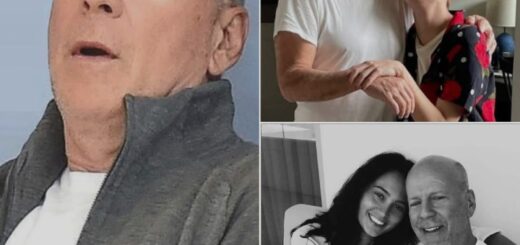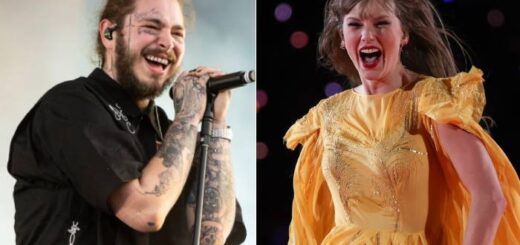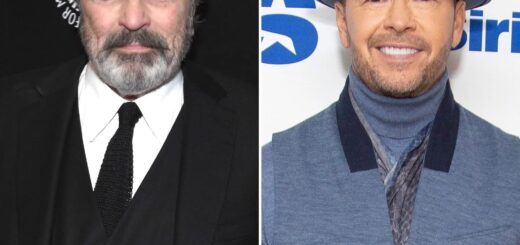The heartbreaks that Robert Redford hides
by Admin ·
He has authorised a new biography – but it is the personal tragedies the actor doesn’t tell us about that make the book remarkable…

ON a cool November evening in 1959 Robert Redford kissed goodnight to his 10-week-old son Scott and lay him down in his cot. The rising young star had just moved into a large apartment on West 93rd Street in Manhattan and days earlier had opened on Broadway in new drama The Highest Tree. With his bride of barely a year Lola and still heady from their elopement to marry in Las Vegas, Redford seemed on top of the world. But by the next morning Scott was dead, the victim of cot death, a syndrome that back then did not even have a name. It was the heartbreak of Robert Redford’s life, a tragedy that forever altered his psyche, plunging him into a depression that he only escaped by immersing himself in acting.
Yet you would hardly know the agonies that he endured from the new authorised biography that the screen legend has helped craft. “I was not into shared soul searching,” the superstar confesses. “In that regard I was and remain a loner. I like to face the issues alone.” The book, simply titled Robert Redford, offers a fascinating insight into the actor’s mind, as much for what it does not reveal as for what it does. It represents the way Redford, 73, hopes to be seen by the world, disclosing as much – or as little – as he could bring himself to expose.
But among the watershed moments that are dismissed in mere paragraphs or with little comment from Redford are the death of his first son Scott, the execution-style murder of his daughter’s fiancé and the two life-saving liver transplants which his eldest surviving son Jamie has undergone.
Some other seminal events also receive scant mention. After years of trying to squeeze emotional memories out of the actor, Callan confesses: “I felt his spirit was still evasive.” The death of Scott was a devastating blow but only after the biography had been written did the actor speak publicly about the loss, saying in January: “It was really hard. We were very young. I had my first theatre job, which didn’t pay much. We didn’t know anything about sudden infant death syndrome so the only thing you think is that you’ve done something wrong. As a parent you blame yourself. That creates a scar that never completely heals.”
Redford notoriously bottles up his pain inside. In 1998 he confessed in an interview: “People think it’s been easy for me. That’s hard to live with. It’s so untrue. The hardest thing in the world is when your children have problems. There have been so many hits on our family that no one knows about and I don’t want them to for my family’s sake.” Tragedy almost struck again when his second son Jamie was born seven weeks’ premature suffering extreme hyaline membrane disease, a respiratory problem that almost killed him. Redford devotes just a few words to this heartache. “The doctors gave Jamie a 40-60 chance but he hung in. Over a month his condition improved and then he stabilised. It was a colossal relief for us.”
Jamie would endure a lifetime of ill health, suffering ulcerative colitis, the removal of his colon, and ultimately liver
failure requiring two transplants at the age of 30. After the first liver transplant failed, Callan says Redford and his son endured “12 of the worst weeks of both of their lives”. And yet in his biography Redford utters not a word on this horrendous period. While Jamie is voluble on the subject Redford remains silent. After 28 years of marriage Redford had split from Lola but two years later they were reunited at Jamie’s hospital bedside. “You’re always going to be parents to the same children,” says Lola. “Through all of this with Jamie Bob and I really leaned on each other for a lot of emotional support.”
Jamie, 49, recalls: “My father was 100 per cent involved. He consulted on every aspect of the surgeries.” Yet the pain remains too fresh for Redford to explore in his biography. The murder of his daughter Shauna’s fiancé Sid Wells, in Boulder, Colorado, in 1983, is another deeply personal tragedy that he prefers not to examine too closely. Wells was found shot in the back of the head a few doors away from Shauna’s flat, in the apartment of Thayne Smika, who was arrested for the crime but released for lack of evidence. Redford broke off from making the film The Natural and flew to Colorado to comfort his daughter, attending her lover’s funeral. “The lack of closure in Wells’ death would be a terrible burden on the family for years to come,” writes Callan. Yet Redford offers little on his daughter’s grief, simply recalling that he found her “convulsed with confusion, in a terrible state”.
Police recently put out an arrest warrant for Smika after new ballistics testing technology linked him to the 20-gauge shotgun used to kill Wells. Detectives informed Redford’s family: a mark of how deeply they remain connected to the tragedy. Another seminal incident in Redford’s life is conveniently glossed over in the biography: the behaviour that got him thrown out of the University of Colorado. The memoir recounts how as a youth Redford stole beer from friends’ storerooms, dodged late-night police patrols and broke into empty homes for all-night boozing sessions. But his wild college years, when his drinking became so heavy after his mother’s death that he was kicked off the baseball team and lost his scholarship, is barely alluded to.
“Redford had become beloved in the drinking circles but was regarded as a loose cannon,” writes his biographer, who omits details of his escapades only to conclude: “The University of Colorado had made it clear he wasn’t welcome back.” On the subject Redford says not a word. It’s not that he is taciturn: he speaks at length about finding his motivation for a role, the intricacies of working with co-stars, his political activism and the splendour of the Wild West’s natural beauty. But when confronted with the most emotional moments of his life he is reticence personified. Yet the screen legend does admit to a crushing guilt, the sense that by choosing to lead the frivolous life of an actor and winning such lavish rewards he has invoked a karmic backlash from the gods. He blames himself for sparking the tragedies that have afflicted his family.
“It felt like retribution,” he says. “I had rejected common sense to pursue this reckless life. This I felt was a disaster entirely of my creation.” He feels a threat hanging over him. “I always had this thing that death was on my shoulder, 24/7. My dogs, as a kid. My uncle. My mum. My firstborn. A darkness right on top of me.” Yet he does not want to explore that darkness or revisit it – and this reveals much about himself and the wounds that have yet to heal. Not that Redford would admit it. As his son Jamie observes: “My father, like everyone else, had a capacity for self-absolving denial.”
By passing quickly over some of the most emotionally rending experiences in his life, Redford reveals the deep pain still locked within him. The star of The Sting, Butch Cassidy And The Sundance Kid, Indecent Proposal and Out Of Africa has spent 14 years collaborating with author Michael Callan, detailing the minutiae of his life during lunches and dinners, lengthy interviews and long walks across the mountainous terrain around Redford’s beloved Sundance ranch in Utah. He made sure that his children, wife, ex-wife, co-stars and best friends cooperated with the author. He handed over decades’ worth of private diaries and journals, notebooks and correspondence.


